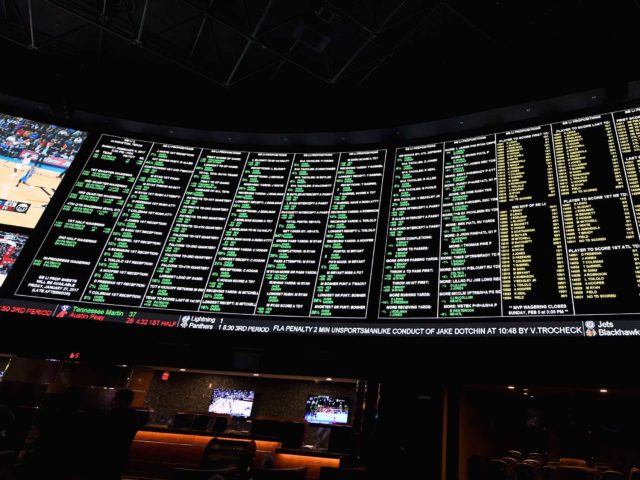California’s Indian tribe gambling monopolies are being threatened by legalized sports betting, which could pave the way for race tracks, card rooms, and online competition.
Indian tribes currently enjoy a casino monopoly in California through gaming compacts negotiated between each tribe and the state. There currently are 71 Indian tribes operating 78 tribal casinos. Seven other tribes have also signed compacts to open casinos in the future.
Race tracks and card rooms, which have only limited gaming rights, tried to pass a California Constitutional amendment called The Gaming Revenue Act of 2004, which would have allowed local cities to approve full-casino operations. To continue to protect their monopoly, Indian tribes spent $33 million to defeat the effort by a vote of 76 to 24 percent.
But last week’s U.S Supreme Court’s decision overturning the 1992 federal statute called PASPA, which forbade state or local government efforts “to sponsor, operate, advertise, promote, license, or authorize by law or compact” any system involving sports betting, now threatens the tribes’ lucrative cartel position.
Breitbart News reported that California State Assemblyman Adam Gray (D-Merced) has already introduced a state constitutional amendment to capture some of the estimated $20 billion to $40 billion a year in the Golden State’s black market sports betting action.
The California Indian tribes claim that state law and negotiated compact agreements give them exclusive rights to operate sports-book betting as just another type of casino game of chance. The tribes also argue that licensing any other competitors would violate the law.
But it will take a voter initiative to deputize the legislature to have licensed sports betting. Given the battle shaping up between the tribes, card rooms, race tracks, fantasy sports outlets, and Silicon Valley tech disruptors, it will be impossible by the June deadline for both houses of the state legislature to pass a bill and obtain Gov. Jerry Brown’s signature to put a constitutional amendment for sports betting on the November 2018 ballot.
That means there will be plenty of time for the tribes and hopeful new entrants to lobby Sacramento politicians to shape a constitutional amendment for the 2020 statewide ballot.
The best model for what sports bookmaking will eventually look like in California is the UK and European Union. They already use a high-tech open-source statistical programming language called R, nicknamed “Excel on steroids,” to provide streaming reporting feeds to maximize the number of licensed casinos, betting parlors, and interactive platforms that can offer bets on thousands of different sports events each year.
European gaming corporations have already developed their own enhanced personalization and customization options that allow customer choice regarding pricing and/or content betting options. Operators are moving towards offering betting on the performance of a team’s individual players and letting gamblers create their own contests.

COMMENTS
Please let us know if you're having issues with commenting.